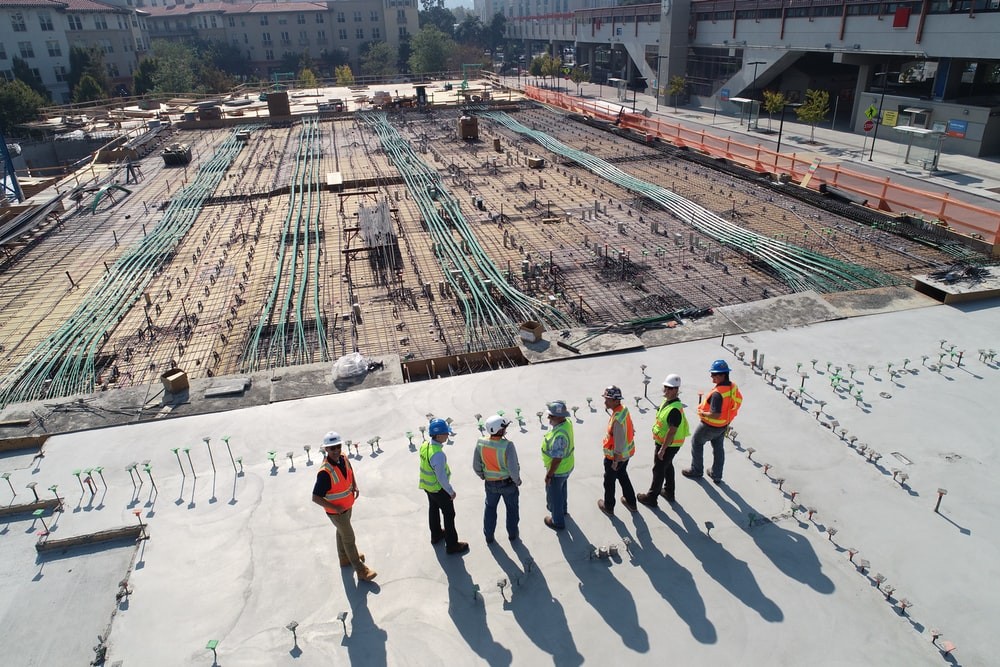Such substances are hard to spot through taste or smell, but they exist in human spaces. Some exist as elements, whereas some are compounds. They get into people’s bodies through inhalation, ingestion, or skin to skin contact. These hazardous materials endanger people’s health as they expose them to toxins. Regulation bodies have tried to establish some control over such materials without complete success. Therefore, you must know what materials are dangerous for you and where you can find them. This way, you can avoid them when you shop for building materials.
Wood Preservatives
You probably think that going for a log cabin or a house built of timber is as sustainable as possible. Well, maybe not. Wood is highly susceptible to rotting and infestation from pests and insects like termites. Thus, wood preservatives applied to it ensure it lasts longer. Some of these preservatives are soluble, which means every time the wood comes into contact with water, the chemicals wash off in the water. One of the most used chemicals is creosote. This toxin comes in a number of forms, depending on the manufacturing items. Some of the types include oil tar creosote, coal tar creosote, among other examples. Among them, coal tar creosote has the highest toxic levels as it could cause cancer. Other insecticides such as arsenic are also dangerous, though in large amounts. Therefore, maybe a wood house isn’t your best option, but movoto offers you numerous picks.
Asbestos
This is one of the most famous toxic building materials. It was commonly used up to 1960 when it was known to be dangerous. It caused mesothelioma, a type of lung cancer and other pulmonary diseases. Despite the findings, several buildings still had asbestos roofs. However, many states have now prohibited the use of asbestos in any form. Its purpose is to manufacture some floors, covering pipes, and as a fireproofing agent in minimal volumes. Modern buildings have entirely abandoned the use of asbestos, but you can still find it in some old homes. At the same time, there are advanced building materials that carry asbestos fibers. Such materials include shingles, floor tiles, and cement boards. Therefore, before you buy an old home or an As-Is house, check for the use of asbestos, both directly and indirectly. It’s an instant red flag.
Fire-Resistant Materials
This are materials manufactured to limit the spread of fire. They are strongly related to Polychlorinated biphenyls, which are artificial chemicals made to resist high temperatures. When they burn, they release dangerous toxins in the air. They then mix with other elements in the air like dust. This way, they are ingested into the human body. The toxins could cause defects or other developmental problems in children, cancer, and endocrine disruption. Identifying such materials is a considerable challenge as they are simply chemicals infused into building materials to improve their performance in case of fire.
Fiber Glass
This is a type of fiber made using glass and mostly used for roofing. Its adverse effects are mainly during handling. The tiny fibers that escape when cutting may irritate your skin and eyes. This may lead to inflammation of the skin and difficulty in breathing. People with allergies and asthma complications are the most affected. It is better to use a dust mask while working on such materials. Additionally, you could ask your company to provide protective protocols when handles construction materials such as this.
Silica
Silica has almost similar effects with fiberglass. The dust produced when inhaled causes respiratory problems. The particles travel deeply into the lungs and later causes silicosis and lung cancer. It could also lead to cancer of the kidney.
Polyvinyl Chloride
PVC is a synthetic plastic widely used for construction. Among all synthetic plastics produced, it is the third most used worldwide, through incorporation into many construction materials. This includes plumbing pipes, hosing flooring, siding, and coating of cables. It contains some additives such as organotins, phthalates, and lead. These toxins may evaporate into the hair, posing severe health risks to people. Inhaling these toxins interferes with the hormone’s activity causing you to develop pancreas, thyroid, pituitary, and adrenal problems. They could also cause cancer, asthmas, reproductive difficulties, and disfunction of the eyes, liver, and lungs. The current colossal production and extensive use are signs that this material is in the market to stay. Thus, you should ensure your safety through measures like disposing it appropriately or advocating for its minimal use.
The list of hazardous materials is endless. Almost every manufactured material has a chemical that could harm your health. Therefore, you should strive to reduce the use of artificial materials. Also, ensure you learn how to protect yourself when handling toxic substances.
